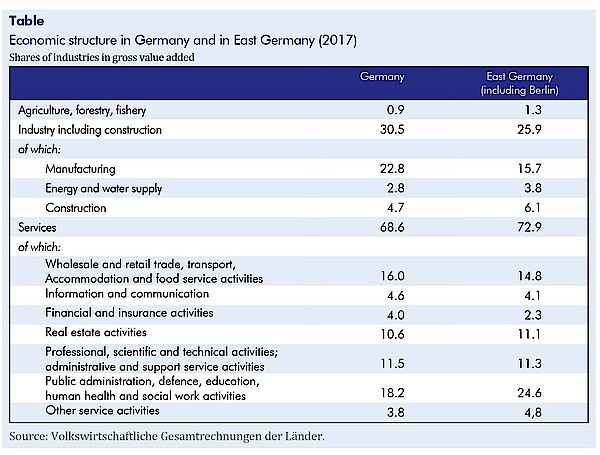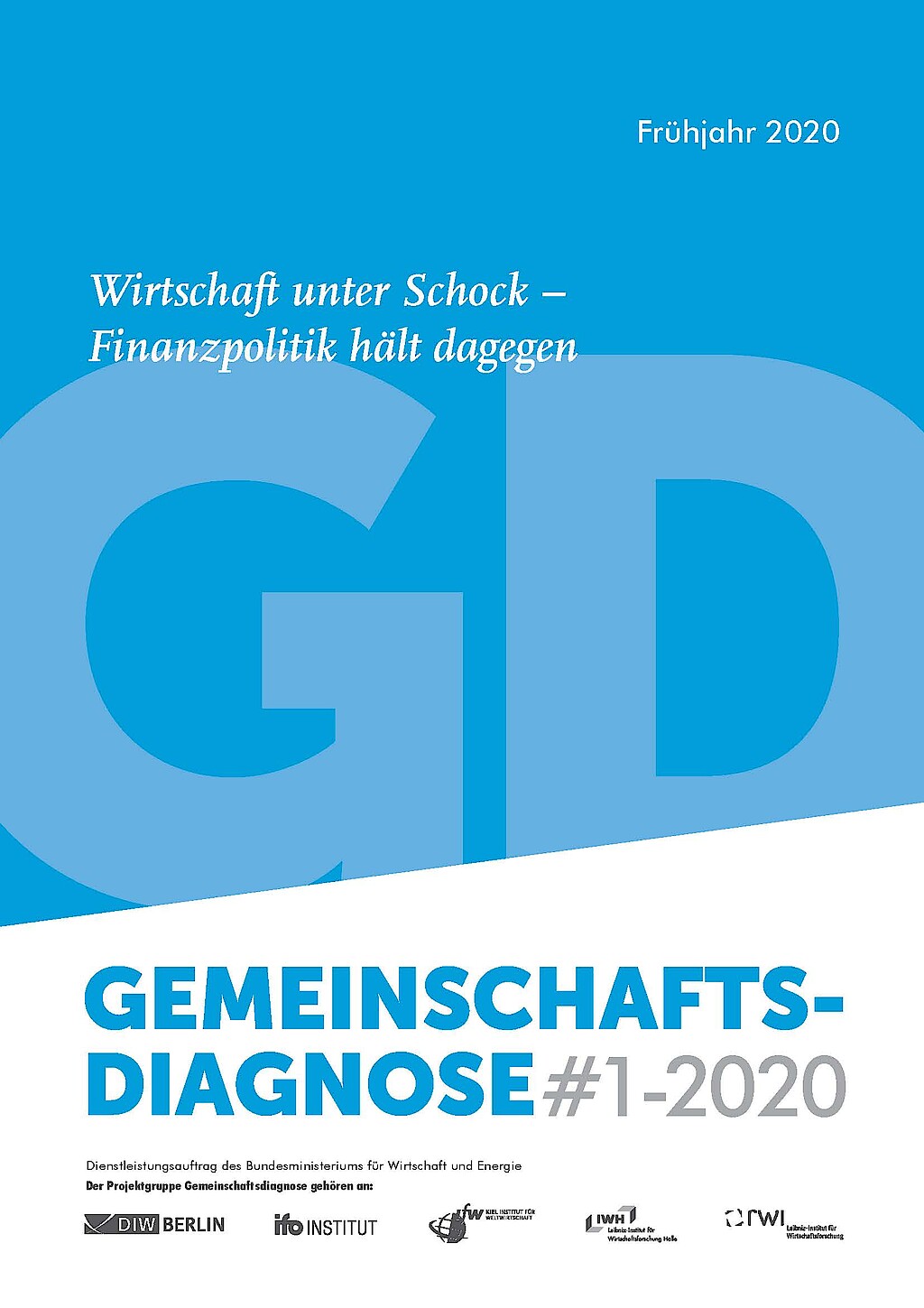The economic slump caused by the corona pandemic is likely to be somewhat less severe in East Germany than in the West ‒ Implications of the Spring 2020 Joint Economic Forecast and official regional data for the East German economy
In its spring report, the Joint Economic Forecast Project Group states that the economy in Germany and the world is almost collapsing as a result of the corona pandemic. Most countries are severely restricting economic activity in order to reduce the number of new infections. In East Germany, the measures are just as drastic as elsewhere in the country, although the number of infections in West Germany is currently somewhat higher. However, the restrictions have different effects on the individual industries, and because their shares in total production in East Germany differ from those in the country as a whole (see table), the restrictions are also likely to have slightly different effects.

In particular, the manufacturing sector in East Germany, which is particularly hard hit by the slump, has a lower weight of around 16% than in Germany as a whole (23%), while public service providers, whose production is likely to remain fairly stable, play a greater role in the east than in the west (25% versus 18%). As a result, production in East Germany is likely to decline somewhat less sharply in 2020, by 3.4% according to this forecast (Germany as a whole: 4.2%). In 2021, the increase resulting from a normalisation of the economy should accordingly be lower than in Germany as a whole (5% versus 5.8%). The unemployment rate in East Germany, as defined by the Federal Employment Agency, will rise from 6.4% in 2019 to 6.8% in 2020 and is likely to be 6.5% in 2021.
“The crisis is hitting East Germany in quite a good economic condition. In 2019, production here has risen by 1.3% and thus more strongly than in Germany as a whole (0.6%)”, says Oliver Holtemöller, Head of Department Macroeconomics and Vice President at the Halle Institute for Economic Research (IWH). He adds that, however, growth in East Germany outside Berlin was no higher than in Germany as a whole; the lead was due solely to the high expansion rate of 3% in the capital. For six years in succession, the economy in Berlin has expanded more strongly than in Germany as a whole. As a result, Berlin's gross domestic product (GDP) per capita in 2019 was slightly above the national average for the first time since the year 2000. In East Germany as a whole, per capita GDP has reached 79% of the German level.
Whom to contact
For Researchers

Vice President Department Head
If you have any further questions please contact me.
+49 345 7753-800 Request per E-MailFor Journalists

Internal and External Communications
If you have any further questions please contact me.
+49 345 7753-832 Request per E-MailIWH list of experts
The IWH list of experts provides an overview of IWH research topics and the researchers and scientists in these areas. The relevant experts for the topics listed there can be reached for questions as usual through the IWH Press Office.
Related Publications

Wirtschaft unter Schock – Finanzpolitik hält dagegen: Gemeinschaftsdiagnose Frühjahr 2020
in: Dienstleistungsauftrag des Bundesministeriums für Wirtschaft und Energie, 1, 2020
Abstract
Die Konjunktur in Deutschland bricht als Folge der Corona-Pandemie drastisch ein. Um die Infektionswelle abzubremsen, hat der Staat die wirtschaftliche Aktivität in Deutschland stark eingeschränkt. Deshalb dürfte das Bruttoinlandsprodukt in diesem Jahr um 4,2% schrumpfen. Die Rezession hinterlässt deutliche Spuren auf dem Arbeitsmarkt und im Staatshaushalt. In der Spitze wird die Arbeitslosenquote auf 5,9% und die Zahl der Kurzarbeiter auf 2,4 Millionen hochschnellen. Die finanzpolitischen Stabilisierungsmaßnahmen führen in diesem Jahr zu einem Rekord defizit im gesamtstaatlichen Haushalt von 159 Mrd. Euro. Nach dem Shutdown wird sich die Konjunktur schrittweise erholen. Entsprechend fällt der Anstieg des Bruttoinlandsprodukts im kommenden Jahr mit 5,8% kräftig aus. Mit dieser Prognose sind erhebliche Abwärtsrisiken verbunden, etwa, weil sich die Pandemie deutlich langsamer abschwächen lässt, oder weil das Wiederhochfahren der wirtschaftlichen Aktivität schlechter gelingt als angenommen bzw. eine erneute Ansteckungswelle auslöst.



